When you’re on a baseball road trip, there’s nothing better than waking up after a restful night of sleep and feeling ready to tackle the day’s adventures.
Unfortunately, that’s not always how things go.
If you haven’t slept well, a day of driving, sightseeing and baseball might simply sound exhausting.
Are you the type of person who tends to sleep poorly while you’re traveling? I used to be this way, but I’ve learned a few things over the years and implemented some changes that have dramatically improved my quality of sleep during baseball road trips. Early on in my travels, I’d lie awake for long periods, trying to will myself to sleep and getting more frustrated with being unable to do so as every minute passed. I’ve gone through my share of days in which I’ve felt like a zombie — something that can negatively affect a trip overall. As I’ve learned to sleep more soundly in recent years, this has had a positive impact on my trips.
Keep these tips in mind during your next baseball trip, and you won’t be surprised to notice that you’re sleeping better each night.
Choose the Right Room
I’ve found there are two reasons that you can struggle to sleep when you’re in a hotel. Sometimes, it’s the simple fact that the bed and pillow feel different than what you’re used to at home. In other cases, sounds of guests in neighboring rooms, slamming doors and humming elevators can be disruptive. You can often remedy the latter issues by making sure that you’re staying in the best hotel room for sleeping. Some hotels have designated quiet floors, which are popular among the business crowd. These are floors that have strict quiet hours that hotel staff are quick to enforce. You can ask if there’s a quiet floor during check-in, but a better approach is to leave a note in the “Special Requests” box when you book online. Upon check-in, it’s good to ask for a room away from the elevator. Sure, you’ll have to walk a little farther to and from your room, but not hearing the elevators and the guests talking outside of them can help you to sleep better.
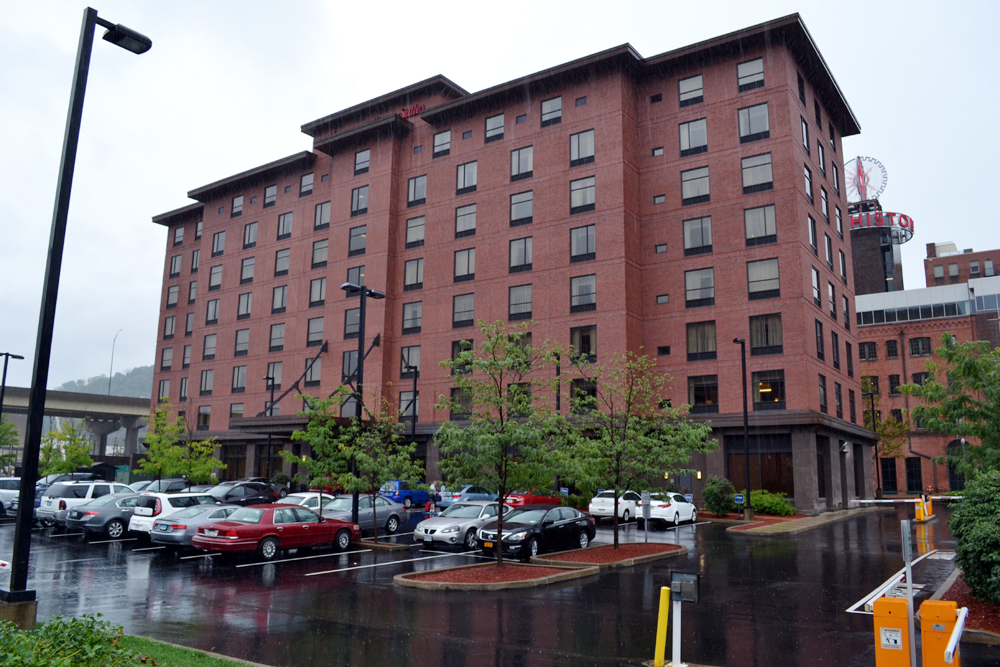
Get Some Exercise — Just Not Right Before Bed
Although I tend to get a lot of exercise from walking around ballparks, I often find that some light exercise in the evening can make for a better sleep. There are lots of studies that show exercise before bed can be helpful, provided that you give yourself an hour or more between the end of the exercise and the time that you crawl into bed. Here’s what I typically do: Hotel swimming pools usually close at 10 p.m. Depending on when your game starts, how quickly it’s played and how far you’re staying from the ballpark, it’s often possible to get back to your hotel between 9:30 and 9:45 p.m. This gives you at least 15 minutes for a relaxing swim — or much longer, if hotel staff aren’t meticulous about closing the pool at 10 p.m. sharp. Hotel pools are often empty by this late hour, which means that you’ll usually have the pool to yourself. If you find that swimming is a nice way to unwind, a gentle swim before you relax in your room can set you up for a good night of sleep.
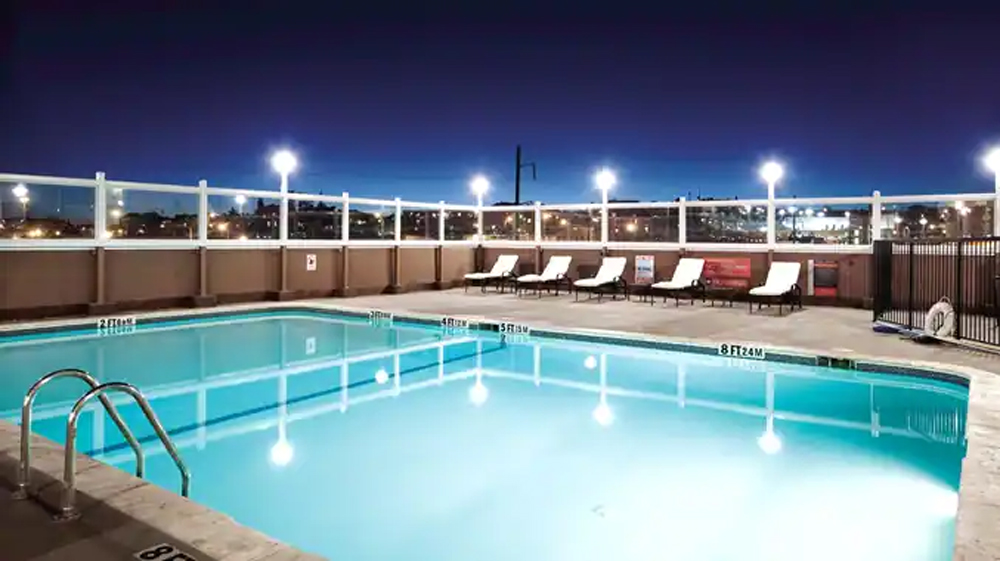
Eliminate the Electronics
It’s easy to spend the hours before bed staring at electronic devices. While I rarely do this at home, I used to have a tendency to do it on my trips. I’d get back from an evening game, immediately put on my hotel room’s TV to start watching highlights from the evening’s games and fire up my laptop to start blogging and checking social media. I’m not disputing that these habits can be fun, but they’re going to cause problems when it’s time to catch some shuteye. There’s a wealth of evidence that indicates electronic devices immediately before bed are disruptive. Not only will this habit tend to push back your bedtime and make you tired the next day, but the bright lights can also interfere with your body’s ability to produce melatonin — which is also known as the “sleep hormone.” Try to shut off your electronics 30 minutes before bed. If possible, aim for longer.
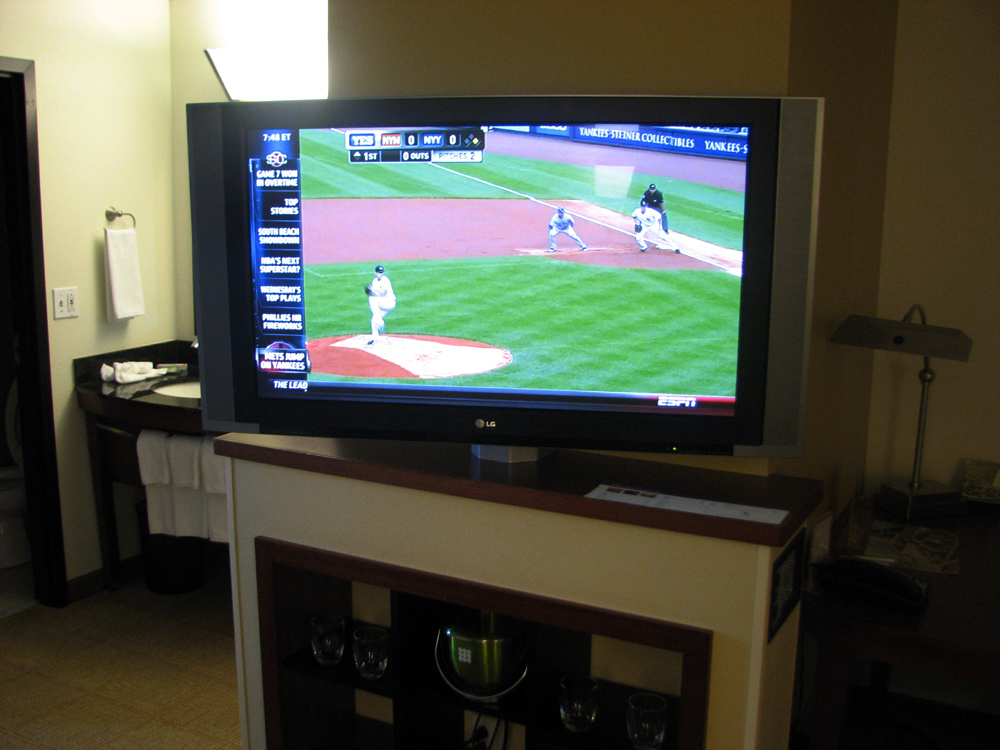
Skip the Late-Night Snacks
I keep a pretty structured routine at home, and this routine includes never eating anything other than a light serving of fruit after dinner. When I’m on the road, however, it’s easy to become a glutton culinary enthusiast. I’d be lying if I said I hadn’t stopped at Taco Bell and grabbed half a dozen tacos or picked up a large Papa John’s pizza on the way back to my hotel from the ballpark at 10 p.m. This decision is problematic in a number of ways, including the strong likelihood that it’ll affect how you sleep. Eating something heavy before bed — and I think a large pizza qualifies as “heavy” — not only messes with your body’s metabolism overnight, but it can also be highly disruptive for sleep. Similarly, cracking open a couple of beers when you get back to the hotel isn’t going to help your quest to sleep well. Try to skip the late-night snacking as much as possible. A piece of fruit and some water will help you to feel full and hydrated. Many hotels have free fruit at the front desk, so this is an easy and convenient pre-bedtime snack if you need something.
Prepare Your Room
I don’t know if there’s any official evidence for this next point, but I find that trying to recreate your home sleeping environment while you’re in a hotel can work well. If you sleep on the left side of your bed at home, sleep on the left side of the hotel bed — even if it’s tempting to lie right in the middle. If you keep your bedroom at home as dark as possible, try to recreate this vibe in your hotel room. I like sleeping in total darkness, so I always unplug or cover the alarm clock, microwave and any other electronic devices that have bright displays You can even roll up a bathroom towel and place it against the base of your door if light is getting in that way and bothering you. I’m too much of a germaphobe to travel with my own pillow, but doing so can be a good way to give yourself the familiar feeling of home. I tend to find that most hotel A/C units are loud enough to wake me. To keep cool without running the A/C, I’ll occasionally turn the A/C off before bed and sleep with just a sheet on instead of covering myself with multiple blankets and having the A/C running. Each of these pre-bedtime steps can contribute to a better night’s sleep.
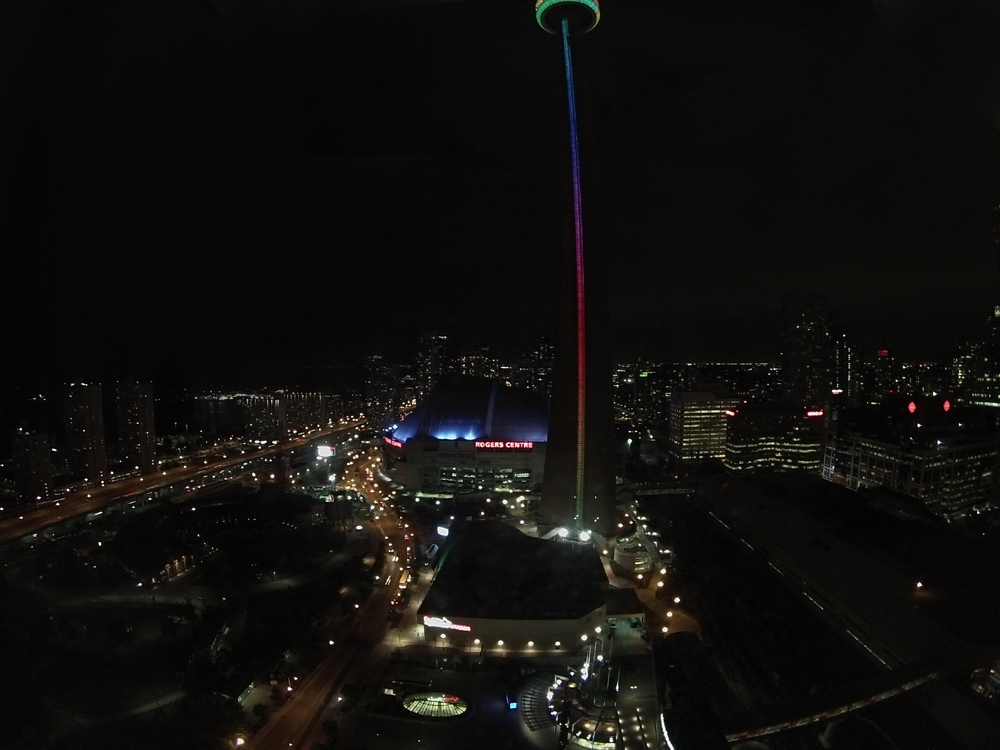
Use Multiple Alarms
Another potential sleep disruption is worrying about getting up in time for an early departure, whether you’re heading to the airport or you simply need to get on the highway to make it to your next destination. I’ve found that this worry can especially affect my sleep before flying, particularly when I need to wake up at an unconventional time such as 3 a.m. A simple solution I’ve used over the years is to set multiple alarms, which will alleviate any worries about your alarm not going off or you failing to hear it. I set alarms five minutes apart on my iPod touch and phone — for example, 5 a.m. and 5:05 a.m., which helps me to relax. You’ve also got the option of setting the wakeup function on the TV or asking the hotel front desk to give you a wakeup call, although I wouldn’t use the latter method exclusively. On a semi-related note, I’ve found that I sleep better if I know I have minimal tasks to complete before checking out in the morning. It’s stressful to lie in bed and make mental notes of everything that you need to do before you leave the hotel, so taking care of many of these tasks before bed — ideally, without the TV on — can help. Packing up as much as possible, loading the car with things that you don’t need overnight and even setting out the clothing that you’ll wear in the morning can all be helpful. I have no trouble being out of the hotel 20 minutes after my alarm goes off when I deal with these things the night before.
Get Your Own Room if Necessary
Many years ago, I worked for an employer that was incredibly cheap, using cost-saving ideas such as telling us to buy our own office supplies and to work from home on sick days. When it came to business trips, one of this company’s tactics was to put two people in the same hotel room. This is something that I endured on a handful of occasions. My usual roommate was a good guy, but had sleep apnea and used a CPAP machine at night. It made it sound as though an asthmatic Darth Vader was sleeping in the bed next to mine, and I rarely got much sleep on these trips. (I remember being so exasperated during one trip that I seriously thought about packing up my stuff and finding another hotel room or hotel altogether. And potentially rage-quitting my job in the morning. But that’s another story.) What’s my point? you might ask. Point one is don’t work for a cheap employer, and point two is don’t be afraid to book your own room if you expect that your road trip partner will disrupt you at night. It’s far better to spend a little extra on separate rooms and not have someone keeping you up with their breathing/snoring/Darth Vader devices. You’ll be better rested and less tempted to poison the other person at breakfast to get revenge for a sleepless night.
Do you tend to sleep well on baseball road trips, or is it a struggle for you? If you’re a sound sleeper, what techniques do you use?
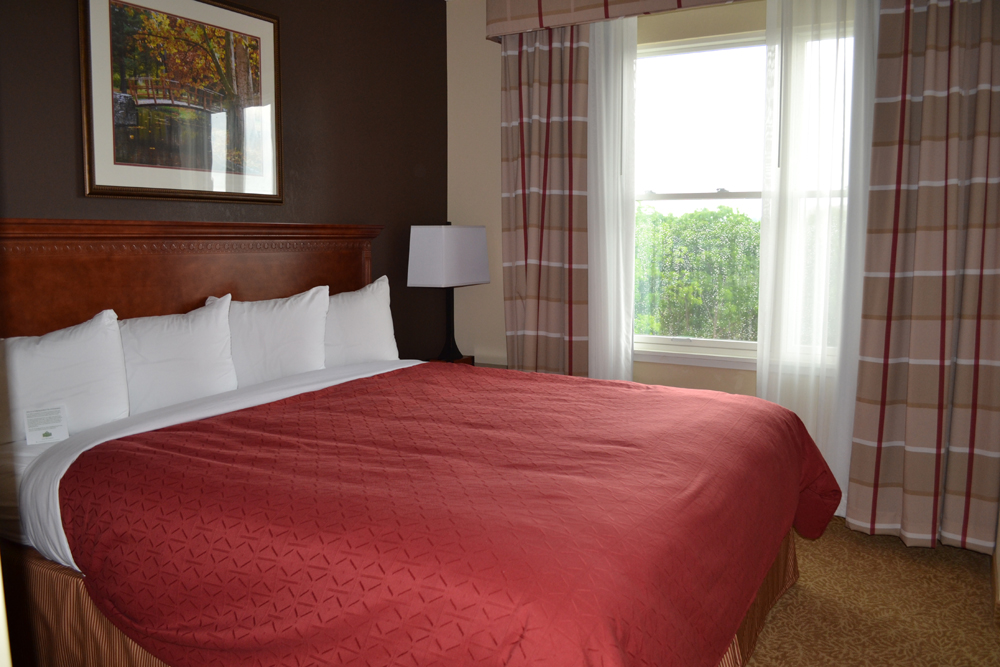
You must be logged in to post a comment.